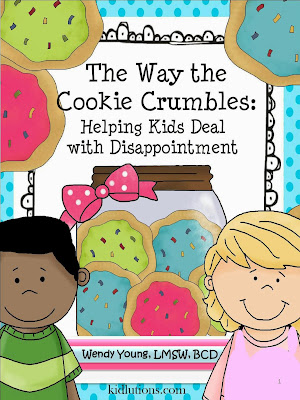When Sorry Doesn't Cut It: Put-Downs and Put-Ups!
Whenever you are with a group of kids (ahem...grownups, too!) there are bound to be times when somebody says something unkind about another person. This may be right in front of the individual, but it may also be behind his or her back. Typically, we may say in response to the culprit, "That's not very nice. You need to say you're sorry."
A Half-Baked Sorry
I don't know about you, but a half-baked "sorry" never seemed to sit very well with me. Even as a kid. An empty "sorry" just leaves something to be desired. And Alfie Kohn, an early childhood expert is one of many early childhood specialists that frowns upon forcing children to say they are sorry. (Truth be told, I have never forced my own children to apologize, I didn't prevent it, either. It was really a non-issue. What I did do was make them work hard to right their wrongs. At times they would beg me..."Why can't we just say 'sorry' like so-and-so does and be done with it?")'
One Idea That Works
One Idea That Works
Here is one idea that I have used in family therapy with "real" families using "real" put-downs, in the schools while working as a school social worker, and in the Head Start programs to which I consult. I use it at home with my own kids, and have even used it while conducting teenaged therapy groups (some of the toughest of customers).
When somebody says something rude, disheartening or just plain mean about somebody else, we stop what we are doing and the person who issued the unkind comment is asked to provide two put-ups for every put-down. So, if somebody said two mean things about somebody else in one sentence, then they have to find four things "nice" to say about that person. Alternatively, the person could find two nice things to do for the other person over the next week.
It's worked like a charm every time! Hope it works for you, too! If you try it, let us know how it turned out! Did you "tweak" it at all? Find a new "spin" to use with it? Tell all!
Spin-Doctor Tip: If you are working on this behavior with your own kids, make sure you check your own behavior, too. It's hard to expect a certain set of behaviors in children if we cannot display them ourselves. If you are in a group situation with other adults and one starts to bad mouth somebody else (either present or not present)...why not try the put-up approach with them, too. Obviously, you cannot make an adult (nor a child for that matter) say something nice...but you can certainly guide the discussion in this direction, by adding your own observations about what you find good about their intended target! What a better world it would be, if we could all remember to do this on a daily basis. What if it became as routine as brushing our teeth?







Comments
We have tried this with my 13 year-old son who on occasion likes to 'put down' my 9 year-old. But haven't done this for awhile.
Will start again!
Let us know how it works out, and if you tweak the system in any way!
All the best,
Wendy
Wendy =)